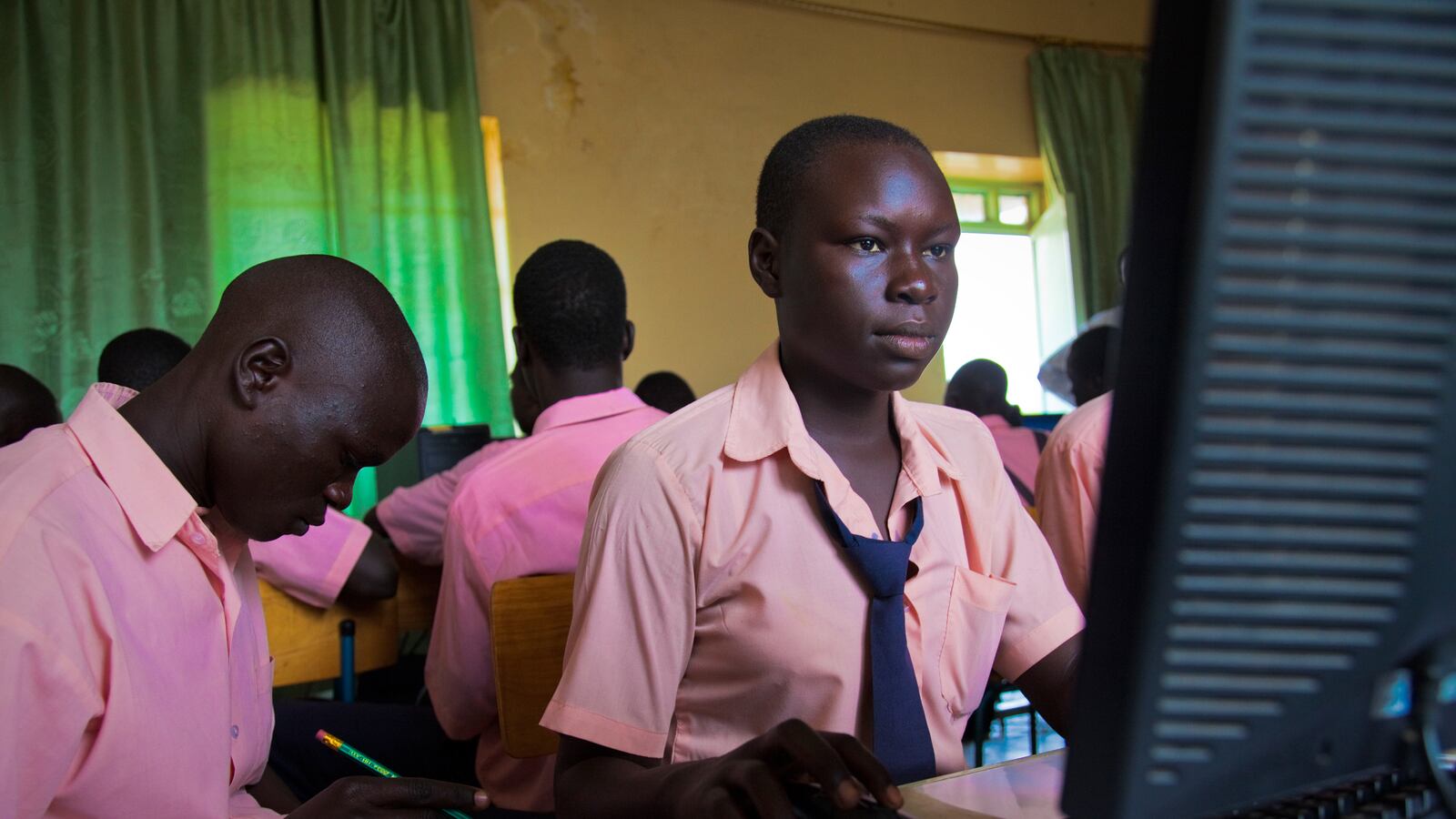The United States frequently fancies itself a defender of online freedom, serving up stern words to regimes which censor and control the Internet.
So it was a little awkward last Tuesday, when students in Iran, Cuba, Sudan, and Syria suddenly found themselves disconnected from Coursera, a popular U.S. provider of massive open online courses (MOOCs) not by a dictator's whim, but because of American economic sanctions which prevent the export of “services” to blacklisted countries.
Coursera, which offers free online courses so that “anyone around the world can learn without limits,” said last week that they were compelled to begin blocking IP addresses associated with the countries, after finding that their site was in violation of U.S. export laws. “Coursera is working very closely with the U.S. Department of State and Office of Foreign Assets Control to secure permissions to reinstate site access for students in sanctioned countries,” the company reassured on its blog.
A few hours later, the site stopped blocking Syria after discovering that the country's sanctions contain an exemption for non-government organizations focused on “extending access to education.” But around 2,000 students in Iran, Cuba, and Sudan remain cut off. The site now greets them with the following message:
“Our system indicates that you are trying to access the Coursera site from an IP address associated with a country currently subjected to US economic and trade sanctions. In order for Coursera to comply with US export controls, we cannot allow you to access to the site.”
MOOCs have been praised as “global classrooms” that help students around the world get access to free education from top universities. Recently, Coursera featured a stirring testimonial from a doctor in Syria who began taking course on the site amidst the country's ongoing civil war.
The event draws attention to the U.S. Treasury Department's Office of Foreign Assets Control (OFAC), which has previously issued guidance and licensing policies to “support the free flow of information to citizens of Iran.” The current policy states that “goods, technology, or services may not be exported, reexported, sold or supplied” without a license, but it does allow for “information and informational materials.” However, Coursera is being considered a “service”—rather than “information”—because it involves human instructors grading exams and sometimes awards certificates, which can be obtained for a fee.
It's also unclear why U.S. sanctions allow a licensing exemption for educational NGOs in Syria, but not in any of the other affected territories.
“OFAC has a favourable licensing policy to authorise U.S. persons to engage in certain targeted educational, cultural and sports exchange programmes,” a Treasury spokesperson told IPS News. “Of course, under a favourable licensing policy, U.S. persons need to come in and seek a license – without that, we cannot act.”
OFAC and Coursera could not be reached for further comment.
While the government has not specifically classified them as such, critics are concerned that educational sites like Coursera are dealing with the same red tape as arms dealers under current U.S. export law. Dr. Ebrahim Afsah, a professor at the University of Copenhagen who teaches a class about “Constitutional Struggles in the Muslim World” on Coursera, finds the logic disturbing.
“The ultimate results, as has become very obvious with respect to MOOCs, are eminently counter-productive, harming the very people US foreign policy should be reaching out to: the young who are hungry for an education and yearning to link back to the global mainstream,” Afsah wrote in an email.
The policy is also ironic given that the U.S. State Department has taken on a strong anti-censorship rhetoric toward countries like Iran. U.S. officials have blasted Iran's efforts to create an “electronic curtain,” which takes after China's infamous “Great Firewall” by slowing down websites like YouTube to the point that they're unusable, and attempting to block access to circumvention tools like Virtual Private Networks and the anonymity software Tor.
The blockage occurred just as President Obama delivered his fifth State of the Union address, in which he again threatened to veto legislation that would impose new sanctions on Iran. “For the sake of our national security, we must give diplomacy a chance to succeed,” the President said.
Educational entities have had previous trouble navigating OFAC's regulatory landscape. In 2010, the English Testing Service (ETS) was initially blocked from administering an English proficiency exam that is a requirement for Iranian students attending university in the U.S.
Given Coursera's good relationship with the State Department (they recently formed an alliance to open “learning hubs” around the world), it shouldn't be too difficult for them to obtain the proper license and resume serving students in the affected countries.
But what about other educational websites, who still need to scale bureaucratic hurdles to offer access everywhere? As long as the underlying “special permission” approach to U.S. economic sanctions continues, new outlets will have to plan further ahead.
Other players in the MOOC world are hoping that will change. EdX, a MOOC platform owned by MIT and Harvard University, avoided the economic road bumps Coursera is now hitting by beginning the licensing process from the get-go (The site temporarily withheld some certificates, but was never forced to block access). But Tena Herlihy, the general counsel for EdX, said in an email that the nonprofit “supports the view that MOOCs be considered providing information” in the future, instead of being made to become licensed service providers. “Absent that, edX would support a broad general license covering all MOOCs,” said Herlihy.
As for the students, most are savvy enough from years of subverting their own government's censorship to know the tools they can use to bypass Internet filters. What's at stake, says Dr. Afsah, is whether U.S. economic policy will change to match “the rhetoric of freedom and opportunity that Americans generally would like to be associated with.”






